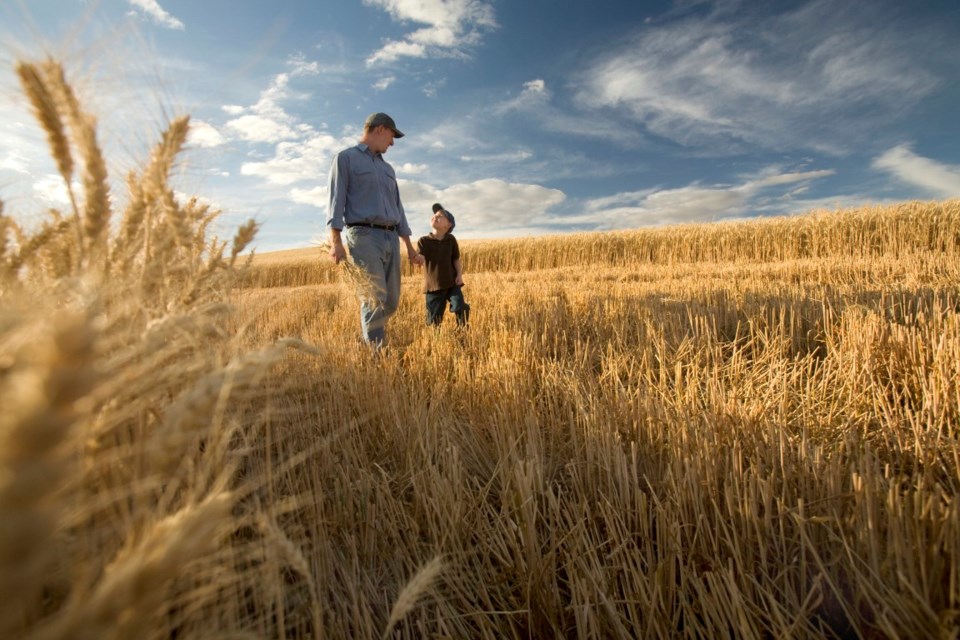WESTERN PRODUCER — For sake of a discussion, let’s differentiate succession planning from transition planning. Let’s consider succession planning to be about a situation where there are no next generation family members who will be carrying on the family farm. Transition planning occurs when the next generation will be taking over the farm at some point.
I think it’s fair to say that most farming parents would be thrilled to have an opportunity to transition their businesses to their children who have an interest in farming.
So, here we go, then. Transitioning farms need to plan for this and plan for that — there is seemingly no end to the planning that is supposed to be happening.
Things have to be “fair,” commitments made and honoured. Calendar dates (sometimes related to age) where changes will occur are set. And, oh, we don’t want to pay too much tax. And what do you mean that I’m not going to be able to farm anymore? We just need to borrow the Staples “easy” button and everything will be fine.
A farmer and I were recently reminiscing about our early days on the farm. I recalled a time when my father was away for a day and I decided to take the tractor, hook onto the cultivator and do some field work. I don’t think I was 12 years old. My father certainly didn’t ask me to do any cultivating before he left. I remember being quite proud and upon reflection, I’m thinking that Dad maybe not so much.
The farmer I was talking to is mid-career now since taking over the family farm. He recalled early on deciding that he would approach things much differently once he started farming. This is a common occurrence, typically somewhat tempered once the transition occurs and reality set in.
Both reflections are powerful aspects of a form of transition that happens automatically. It occurs whether there’s any formal approach to transition planning or not. I’m referring to transition by observation.
Observational learning is the process of learning by watching the behaviours of others. The targeted behaviour is watched, learned, and then copied. Also known as shaping and modelling, observational learning is most common in children as they imitate behaviours of adults.
So, what behaviours are you, as parents, demonstrating to your children? Let’s be more specific: what business management behaviours are you, as parents, demonstrating to your children that they will adopt when they start farming? Or, to the situation of the farmer I was speaking with, what business management behaviours have your children determined they are going to change?
I don’t know at what age farming children first start forming behaviours about farm business management, but I bet it’s early. They’re not going to be able to understand that what they’re observing is about the actual management of a business but they will be making observations, nonetheless.
Here are a couple of things to think about.
Are you able to get some separation between the family and the business/farm? Many people will think automatically about work-life balance, which is important but difficult at certain times of the year. I’m going to take this discussion, though, to a different place. Is your kitchen table your office?
The answer ideally should be “no” but all too often, the kitchen table is where business meetings occur, where decisions are made and where records are kept. If this is your reality, your children are going to struggle with differentiating between family dinners and the family business.
Many farm families have told me that one of their best investments ever was a formal office structure outside of the home. I just ran a quick search, and you can buy a modest portable office building for about $25,000. With site preparation, likely about half the cost of a new pickup. A subtle but hugely beneficial outcome of having a formal and external office building is that your children grow up observing that Mom and Dad “go to work;” that business discussions and decisions happen in the office.
Do your children observe that you work all the time? A farm will consume two of everything you have, your time and your money. I’m not suggesting that you don’t work. Hard work and farming go hand in hand. I am suggesting, though, that you control where some of that work occurs, which is another plug for an office.
Two other aspects of observational transition are related: attitude and management roles. Are certain management roles default functions on your farm? What I mean by default functions are roles where someone has the management responsibility for the role because no one else wants it or has the competency for it. And yet it needs to get done so someone ends up having to do it. Sound familiar?
If so, my suggestion is to look for alternatives. I know how excited I get about having to do something I don’t enjoy. The things that people don’t enjoy are not the first things that get done and often, are not done with the appropriate level of effort needed. They also often will spill over into attitudes that your children will pick up on and use to start forming opinions on management behaviours.
The formal transition of labour, management and ownership at some point where the next generation of family becomes involved still needs to occur.
Observational transition does not replace the formal aspect of planning. But it can certainly work to make the formal planning easier, more rewarding and more fulfilling.

